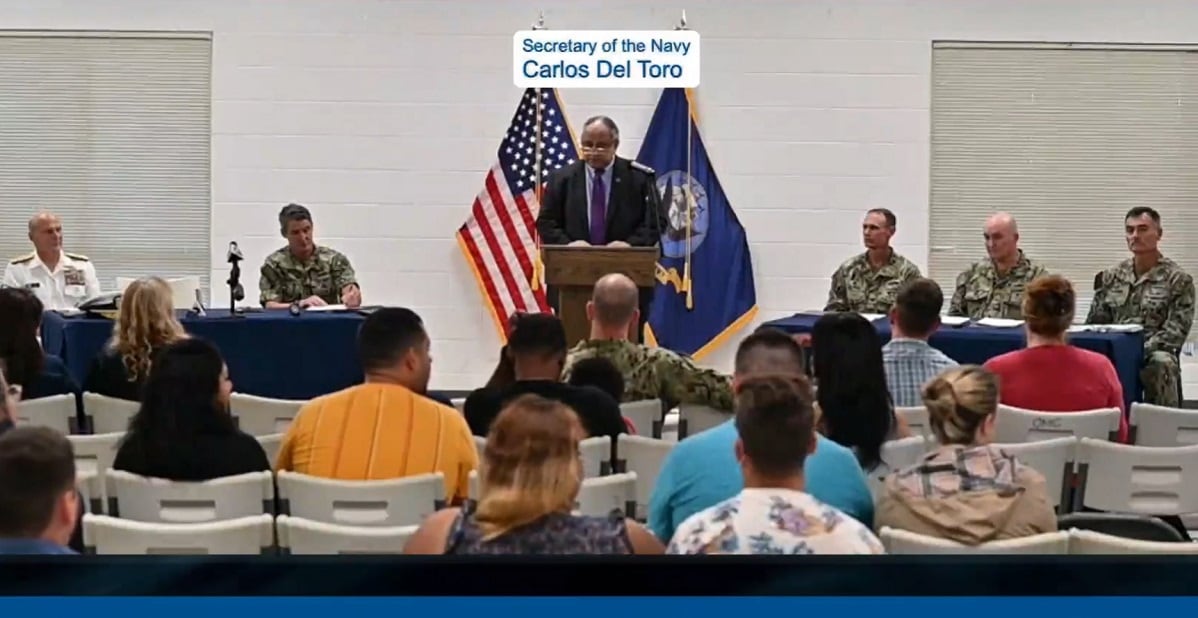Democrats’ latest spending proposal to keep government agencies operating through mid-March includes $350 million in extra Defense Department spending to address the ongoing water contamination issue affecting thousands of military families in Hawaii.
The spending bill, which is expected to be voted on by the House this week, includes $100 million for the department to comply with the state’s emergency order mandating the removal of all fuel from the Red Hill Bulk Fuel Storage Facility.
Another $250 million would be set aside for individual services to cover expenses related to the drinking water contamination, in an effort to help families affected by the crisis.
The water crisis has affected more than 9,000 households at Joint Base Pearl Harbor-Hickam and Aliamanu Military Reservation. They include Individuals from the Navy, Army, Air Force and Coast Guard.
Military families have been unable to use the water in their homes for more than two months, following reports of fuel odor and sheen in their tap water. Some families have moved to hotels, while others who have remained in place have been provided bottled water and alternative shower and laundry facilities.
The crisis has drawn national headlines and significant criticism of Defense Department officials, who have opposed mandates for the fuel removal.
The new spending bill would provide immediate financial assistance to military leaders currently struggling to find emergency funds to deal with the crisis. Since October, the department — and the rest of the federal government — has been operating under a continuing resolution with funding levels for all agencies locked in at fiscal 2021 levels.
That means that new program starts, equipment purchases not approved in last year’s budget, and other unexpected expenses related to military operations must be covered by shifting around money committed to other projects.
The latest spending bill would keep the fiscal 2021 funding levels locked in through March 11, giving lawmakers time to finalize a full-year spending bill for federal operations.
RELATED

If lawmakers don’t pass a full-year budget or an extension by Feb. 18, it will trigger a partial government shutdown, forcing furloughs of non-essential workers and cancellation of a host of non-emergency defense operations.
The short-term spending bill also includes language allowing the president to drawdown “defense services, military education and training to address unforeseen emergencies requiring immediate military assistance.”
Senate leaders have not yet said whether they will back the short-term bill or offer a spending alternative.
Reporter Karen Jowers contributed to this report.
Leo covers Congress, Veterans Affairs and the White House for Military Times. He has covered Washington, D.C. since 2004, focusing on military personnel and veterans policies. His work has earned numerous honors, including a 2009 Polk award, a 2010 National Headliner Award, the IAVA Leadership in Journalism award and the VFW News Media award.





